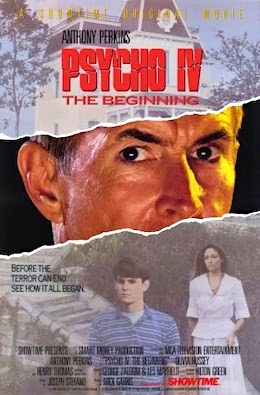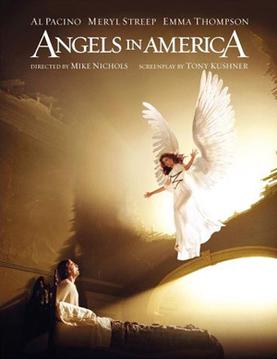How to look over the life of a somewhat reluctant icon and heroine? You could deify her, turn her into a perfect goddess for future generations to worship. You could diminish her, focus on the negative aspects of her private life or attempt to give her feet of clay. Dr. Sally Ride, the subject of the documentary Sally, was many things: pioneer, scientist, lesbian. Sally does an excellent job covering her public, private and secret life, neither glorifying nor tarnishing this now legendary figure.
Sally Ride loved science and tennis. These two loves gave her a leg up when NASA at long last decided that it would seek out both female and minority candidates to be astronauts. In 1978, 35 new applicants were accepted into the space program, including, and I quote, "six females, three blacks and one Oriental".
Sally, in using archival footage, does give us many such cringeworthy moments that reflect their time.
Ride's excellent hand/eye coordination due to her tennis prowess, along with her extensive knowledge of physics, were a major component over why she was ultimately selected to be the first American woman in space. Another reason, not spoken of at the time, was how she did not appear to seek the limelight. This gave her an advantage over her closest rival, Judith Resnick, who did appear to be more eager to bask in the notoriety of being the first. Sally, however, reveals that Ride did want to be the first but wouldn't admit to it.
Another thing that Dr. Ride could not admit to was about her homosexuality. While she did not keep it a total secret, she also was not about to wave pride flags around NASA. Sally reveals that the reasons for her closeted life were more complicated than mere social stigma. The entire Ride family was very closed up emotionally. Whenever Sally visited her parents, mother Joyce would greet her with, "Hello, oldest daughter," then go back into the house to do whatever she was doing prior. Ride also saw what happened to her friend and mentor, tennis legend Billie Jean King, when King was outed in a palimony suit. The ensuing scandal cost King millions in endorsements and legal fees.
All those factors played into some of Ride's various decisions pre-and-post flight. That is not to say that Ride was some dour woman. Sally reveals that when on a jet when training, she let out enthusiastic cries of "WEE!" when the jet spun. Once STS-7 lifted off, her comment was, "This sure is fun". Becoming a historic figure, however, had its drawbacks. Her rejection of a bouquet of flowers when the Challenger returned caused an uproar. The constant celebrations drained her. The Challenger explosion, which killed among others her frenemy Resnick, all took their toll.
In all those years, Dr. Ride's relationship with Tam O'Shaughnessy was her rock. Their relationship was not perfect. O'Shaughnessy would have preferred that Ride be more open about their lives beyond just business partners. They made it work, somehow, until Dr. Ride's death. With her now gone, O'Shaughnessy is able to fully acknowledge her life partner.
Sally is both portrait of a woman and metaphorical time capsule of women in flight. One fascinating bit of discovery in Sally has nothing to do with Ride herself. In the 1950's, there was thought of having women go into space before Valentina Tereshkova became the very first woman in space (Ride being the third overall). Again, via archival footage, Sally shows aviatrix Jerri Cobb being interviewed and stating that women were perfectly capable of being astronauts. This idea was pretty much dismissed by NASA and reenforced by the culture, which made films where female astronauts collapse emotionally.
Sally shows us that even in the early 1980's, some ideas still held. Footage from the press conference with Ride and her fellow astronauts show a particularly ghastly moment. One reporter asks Dr. Ride (she would quietly but firmly ask people to refer to her as either "Sally" or "Dr. Ride", but not "Miss"), "Now, Dr. Ride, during your training exercises as a member of this group, when there was a problem, when there was a funny glitch or whatever, how did you respond? Did you weep?". She was able to at most smile dismissively at these comments, deflecting to ask if her fellow crewmen did likewise.
Sally Ride wanted to make history. She wanted to be the first. She was aware of the historic nature of being the first. She also was not keen on having her sexual orientation be one more "first". Ride was in a vague area when it came to her sexuality, neither fully out of nor fully in the closet. Sally, however, reveals that her reticence was due to a variety of factors. Shame was not one of them. She was just a pretty closed-up person, focused on the job, sometimes to the detriment of the personal.
In between the various footage of Ride asking tough questions to NASA administrators over what happened to the Challenger or her delight at being Cap Com (the voice at Ground Control to the astronauts), we see and hear O'Shaughnessy going through the home that they shared. O'Shaughnessy looks through photos, including the few that they have of them together in private moments versus public engagements where they were not officially a couple. These, coupled with O'Shaughnessy's comments and interviews, are some of Sally's best moments. We get a glimpse into the woman behind the myth.
Sally has various interviews from the many people who worked and lived with Ride. There is her mother Joyce and sister Karen, better known as Bear, who is a Presbyterian minister and like her sister is a lesbian. We get interviews from one of Ride's former partners and her colleagues and friends. Each gives us their insight into this most private of public figures. The archival footage blends well with the interviews. A particularly strong blend is when NASA officials, flummoxed at a woman's specific needs, wonder exactly how many tampons Ride will need when going into space. The inclusion of a makeup kit and suggestion of one hundred tampons is something that everyone now can laugh about. Even Sally Ride via archival footage.
A touching moment near the end is when O'Shaughnessy reads out a letter from Mike Mullane, a former astronaut who trained with Ride and was dismissive of women as astronauts. He not only offers condolences to her on the death of her long-term partner but acknowledges that he was wrong. He also sees that Ride is a true and great heroine for his daughters to look up to. Mullane, who was one of Sally's on-screen interviews, does talk about how he made sexist jokes. He was not asked about the letter. Perhaps he did not know that O'Shaughnessy would read it.
Sally is a respectful and more importantly insightful portrait of this legendary figure. It does not make her infallible. She was closed off emotionally to where her manner kept some at a distance; she was willing to have an extramarital affair. Like so many of us, Dr. Sally Ride was complex, sometimes contradictory. Sally looks into those complications and contradictions, a woman who was not emotional yet thrilled with glee at flying.
I do not know if, had she lived longer, she would want to be known as "the lesbian astronaut". It was enough to be known as "the first American woman astronaut", which she used to get more girls to pursue scientific interests. Dr. Sally Ride will remain an icon and heroine for all Americans. Sally is an excellent way to get as close to the woman as she could ever let anyone get.
.jpg)




































